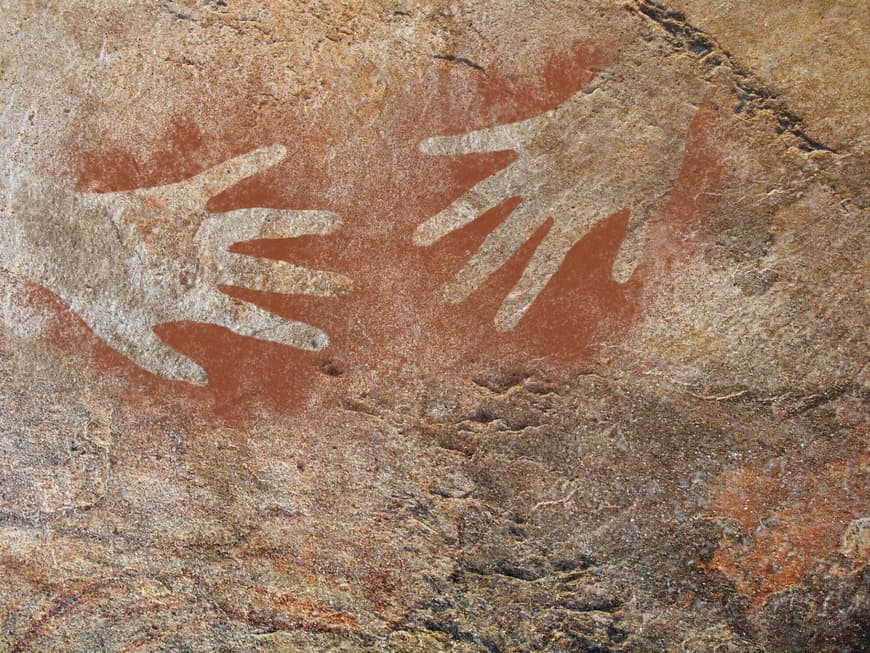
What can the Stone Age have to do with us?
At first you may be surprised that I am so enthusiastic about this article. After all, no matter what the researchers are disenchanting, the Stone Age dates back a few millennia. Five thousand years to be precise. At least that's where it ends. It began an incredible 2.5 million years ago. So it can't really have much to do with what I love to do most: modern love life.
However, this modern love life is repeatedly associated with a very specific idea of prehistoric life. The way people lived and loved back then is said to be deeply rooted in our genes and serves as an explanatory model for all sorts of things. It represents the natural development of the partner relationship, so to speak. It explains why people live either polygamously or monogamously and why men still like to distribute their sperm indiscriminately today. It also means that women are worse at parking than men. But is that even true? I've often seen men with a car parked half on the street or in two parking spaces. In my opinion, parking well is different. But maybe I just don't have the right brain to understand this properly.
We don't really know what we think we know
Seriously, what evidence do we have for this way of looking at things? All we have from this period are a few bones, grave goods, tools and paintings. And maybe this or that. And although we know very little about human life from this loooooong age, the way of life of Stone Age people is repeatedly referred to when it comes to explaining today's gender roles or even our sexual behavior. However, we don't even have the faintest idea whether they were shagging wildly or swearing eternal fidelity under the cave paintings.
Let's take a quick look back and consider just the last 2000 years of human history. Because that is a period about which we know relatively much. At least we know more and more the closer we get to today's date. This has a lot to do with the fact that more and more has been written down and left behind for posterity. But we don't really know exactly what life was like 2000 years ago. And we certainly don't know what life was like for our ancestors 5000 or 1.5 million years ago. What kind of sex did they have back then? Did the Stone Age man worry about the size of his penis? Probably not. Did Stone Age women have orgasms or were they annoyed if they didn't? Probably not.
We interpret from what we know ourselves
Ultimately, we can only draw conclusions from what we have found to date. And these conclusions are of course always influenced by the convictions of the researchers. We only ever consider what we ourselves experience to be true. And what have the people who have discovered and researched in this area over the past 300 years probably experienced? The emergence of the nuclear family. In the European context, this means the heterosexual relationship between two people. And they applied this model retroactively to the Stone Age. Anyone researching at that time therefore extrapolated from their situation to the last 2.5 million years.
"Obviously, there is a widespread certainty that we know the social conditions in prehistory, namely that the usual form of relationship was the heterosexual relationship between two people, which then led to biological nuclear families. In other words, that biological nuclear families formed the basis and basic structure of society, etc. and that there was also a certain division of roles, namely that the man was the breadwinner and provider, while the women were housewives, mothers and wives ," says Brigitte Röder, Professor of Prehistory and Early History at the University of Basel, who studies prehistoric gender research.
Fred and Wilma, the dream couple of prehistoric times
How many scientists and writers have shaped our very personal perception of gender roles? To illustrate this, you are welcome to watch a few episodes of The Flintstones. This animated series dates back to the 1960s and features a very typical male-female constellation. That was a time when women were banished to the stove as a matter of course. We could also replace Fred and Wilma with Rock Hudson and Doris Day. It would be the same thing. But Fred and Wilma's lives could have been very different!
We are responsible for our own actions
That's exactly why this article is grist to my mill! At last someone has come out and said the obvious: We don't even know how they lived and loved back then. It's wonderful when the early history of mankind is examined once again! For how long have I been annoyed that women are sent to the fireplace and men to hunt mammoths because of the alleged evolutionary development of mankind! So many behaviors are explained by something that probably never happened. Just because the few insights we have are interpreted in a certain direction.
And that unsettles so many people. And it prevents us from taking responsibility for our actions. Cheating? It's in our genes! Yes, maybe that's partly true. I can't judge that. But to an even greater extent, we are shaped by our upbringing, society and the prevailing norms and values. We learn from the model, i.e. from what we are taught. This means that we are not at the mercy of our genes. We decide what we do. We decide whether to cheat on our partner. This also has something to do with our understanding of morality and trust. We decide whether we want to live in a polygamous or monogamous relationship. We shouldn't make this decision based on Fred and Wilma Feuerstein, but on what we really want. And in our society, all options are open to us.
Anja Drews - qualified sex educator for ORION






